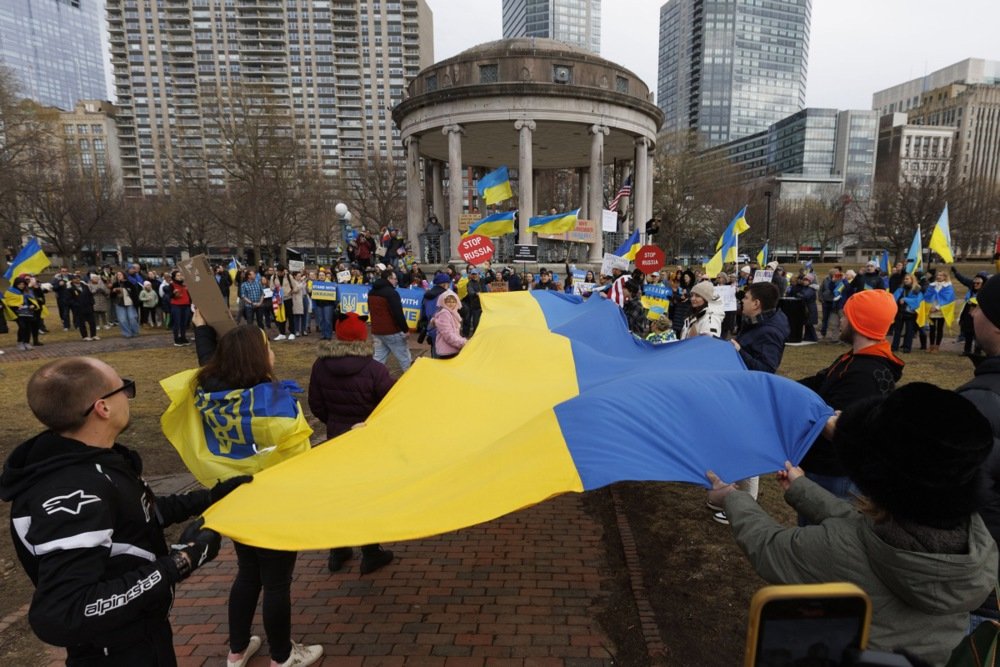
People attend a rally in support of Ukraine in Boston, USA, 1 March 2025. Photo: EPA-EFE/CJ GUNTHER
Following the announcement that US military aid to Ukraine had been halted with immediate effect, CIA Director John Ratcliffe confirmed that the United States had also stopped sharing intelligence with Ukraine in an interview with the Mornings with Maria programme on Fox News on Wednesday.
Ratcliffe confirmed that the US had paused weapons shipments to Ukraine as well as intelligence sharing, but said that he thought the “pause” would “go away” and that the US would soon “work shoulder to shoulder with Ukraine” again as it had in the past.
Despite the continuing fallout from Friday’s disastrous meeting at the White House in which US President Donald Trump and Ukrainian President Volodymyr Zelensky argued angrily about their differing visions of how an acceptable peace deal for Ukraine might look, hopes for rapprochement were somewhat revived following the delivery of a conciliatory letter written to Trump by Zelensky on Tuesday.
Any interruption in the stream of US intelligence supplied to Kyiv would make it more difficult for Ukraine to track Russian missile launches and troop movements, or for it to accurately launch drones at targets inside Russia.
A Ukrainian source has told Sky News that the move was “selective” and indicated that US intelligence pertinent for attacking Russian troops on Ukrainian territory would continue to be shared with Kyiv.
“The most important aspects of US military assistance to Ukraine at the moment are the provision of satellite intelligence … and Starlink communications,” military expert David Gendelman told Novaya Gazeta Europe, adding that “the main impact would be political: such a reversal by one’s main ally … would inevitably lead to the Ukrainian leadership having to revise its entire war strategy.”
